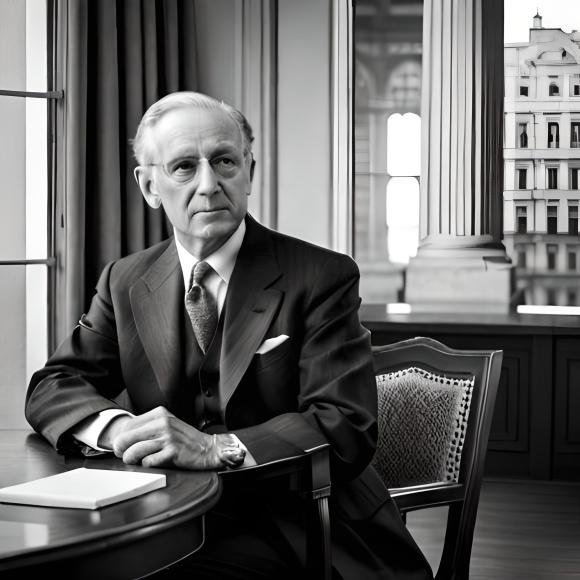Critical studies is a line of thought in humanities that now has influence in applied social sciences. It has its origin in Marxian line of thought. Critical theory focuses on criticizing social structures and economic structures, which it considers responsible for societal ills. One cue to recognize the influence of critical theory is whenever you hear the word “hegemony, “intersectionality”, “imbalance of power” and ‘privilege”. We are going to decode the origins of Critical Theory. It has its root in Marxist hypothesis that economy and economic relationships influence culture. Thus, Critical theory takes a stance against power structures and aims to dismantle them. It has a long history in western thought originating from Marx’s writings to culminating in deconstruction. It has now found voices in gender studies, labour studies, and other academic disciplines that deal with study of societies and people.
It has its foundation in the west and finds its limited historical application in the west. Critical Studies also has a huge lobby of academicians and activists that argue otherwise. They argue for the universalism of Critical studies saying that everything needs to be analysed in terms of allocation of resources, power struggle, and influence in terms of hegemony.
The point remains that critical studies originated out of a very specific historical locale: both temporal and physical. The Marxian idea, itself, made available the concept of “choices” to people, demystifying the general order of things being pre-decided or divinely ordained by the One True God of Christianity, and, by extension, the Monarch. This, perhaps, explains the charm of critical theories, which bleeds into academic disciplines like labour studies, gender studies, studies of race, etc. This particular line of study allows people a gateway of choice, at least psychologically. To understand this choice, we must take a few steps back. What preceeds this choice? It is the world of fixities, where your role is pre-given and you act according to your pre-given station.
It is a world order in which everything is fixed; your place in the world is decided for you on the basis of your birth. Although the social orders might be vastly different in different parts of the world, but this feature of societies, that is our birth having some affect on our station and the kind of life we have on the planet, remains largely common. Here, the critical theorists find one common ground to harp on and one area where they can universally implicate the application of Critical theory.
The pre-given order may be porous, of course, and might have undergone their own evolution. However, for a collective battling with the theme of fixity versus choice, specially when their choices have been undermined by the apparent fixities, the road of choice, however chaotic, seems like a good option. The collective conscious is juggling between various fixities, whose stagnation needs to be resolved for the common good. The element of choices seems like a moderate option, up until the point that it is not moderate any more.
The availaibility of choices seems like an appealing idea. However, it often bleeds on to lack of clarity.
Critical studies originated in the specific time of history and gained popularity by insisting on human factors that can be motivated by human choice. For example, your social station is dependent on the property you own, and you can buy more property if you earn more wealth. In a protestant and colonial Britain, it became easier to accumulate wealth by the means of trade, which meant social progress and affluence for people that came to be known as “middle class”.
Similarly, the focus was taken away from the big decision makers like the God and the King, who remain elusive to human beings. These beings seem to make decisions that are not accessible to the normal human intellect. The paradigm shift to the era of choices had to do two things:
- Make rationality accessible to everyday human comprehension and choices
- Deface and Defame the posers of ‘fixities’.
Hence, anything that was fixed needed to be defamed. That, argumentatively and emotionally, strengthens the propensity towards choices by highlighting the previous choicelessness. However, it is not merely the insistence on choosing that must catch our eye. It is also the insistence of comprehending the rules of the game which the people are essentially a part of. This brings my attention to the Greek disdain for democracy, or the rule of the crowd. For the Ancient Grecians, democracy was far from an ideal form of governance as they thought that a mob does not have the rational capacity to rule itself justly. In fact, for republicanism to work, quality citizenry had to be ensured. In other words, the voting members had to undergo appropriate exposure and training to be built into an “ideal citizen”, which would then lead to creation of an able government. The implications of critical theory may seem empowering and democratizing at first, in which it asks of dismantling of traditional hierarchies and making power and politics accessible to all. However, it attacks the fulcrum of what has been traditionally understood to be “good governance”: which is responsible citizenship that understands its responsibilities along with its rights. Critical Theorists tend to focus on rights, and the lack of the same, for the selected groups depending on their allocated status on the oppression scale, making a case for destroying or radically changing the existing structures,
We can sum up like this:
Critical studies does attempt to reduce the world into factors of understandables in order to assert human agency aggressively. In doing so, it limits itself in understanding and encompassing the worldviews that is foreign to its locale of historical and geographical origination. It understands the world in terms of oppression and, hence, always tends to identify and allocate blame to a clear set of oppressors, who are to be dismantled and destroyed.


Pingback: Understanding International Political Economy - The Banyan Shades